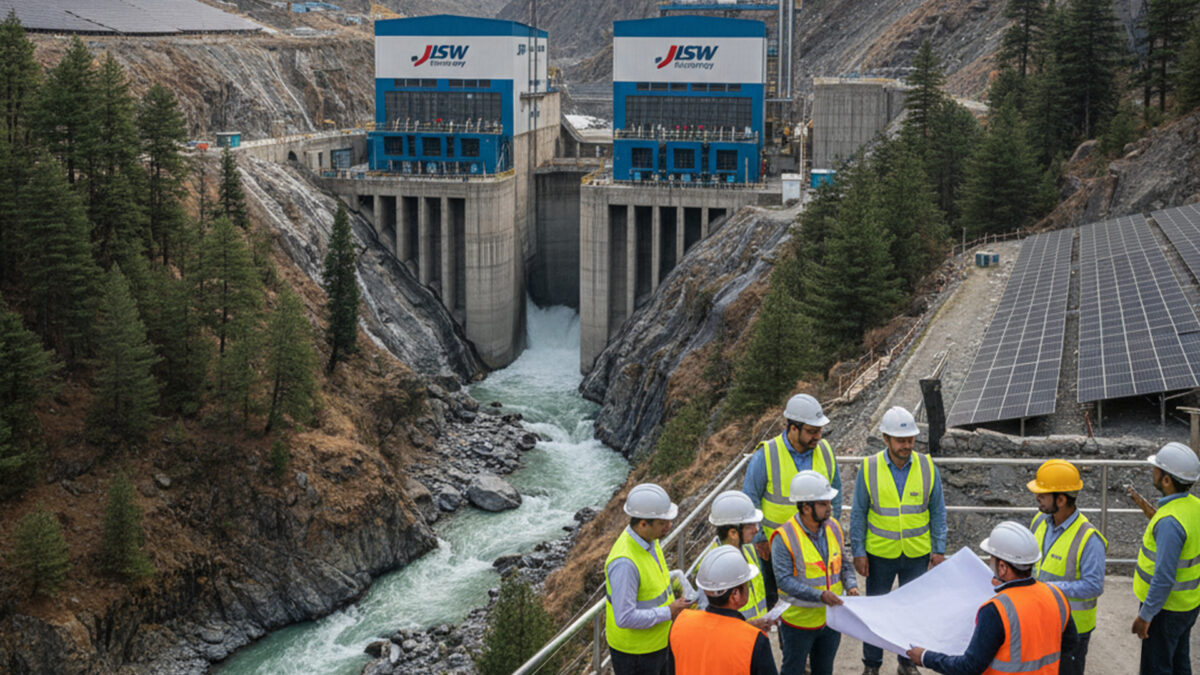JSW Energy, through its renewable arm JSW Neo Energy, has entered into a definitive agreement to acquire Tidong Power Generation Private Limited from Norway’s Statkraft IH Holding AS for an enterprise value of ₹1,728 crore. The deal was formalised via regulatory filings in mid-September.
Tidong is developing a 150 megawatt (MW) run-of-river hydropower plant in the Tidong Valley of Kinnaur district, Himachal Pradesh. The acquisition involves a 100 percent share purchase, with JSW Neo Energy taking full equity and making Tidong a subsidiary, which in turn becomes a step-down subsidiary of JSW Energy once the transaction closes.
Under the project’s existing obligations, 75 MW of the capacity is tied up under a 22-year power purchase agreement (PPA) with Uttar Pradesh Power Corporation Limited. The PPA covers power supply during May through October — the peak load months — at a tariff of ₹5.57 per unit. The remaining 75 MW is untied, allowing JSW to sell that portion in the merchant market after commissioning.
The plant is expected to be commissioned in October 2026, subject to regulatory, environmental, state government, and lender approvals. Consent from the Himachal Pradesh government for change in controlling shareholding is among the required clearances.
With this acquisition, JSW Energy strengthens its position in hydropower. The company said its locked-in generation capacity — including operational, under-construction, and acquired assets with PPAs in effect — will rise to 30.5 gigawatts (GW), of which about 1.8 GW will be hydropower. JSW is also expanding its energy storage capacity, currently targeting 40 gigawatt-hours by fiscal year 2030. Renewables are expected to make up around 70 percent of its overall generation portfolio under its strategy.
Sharad Mahendra, Joint Managing Director and CEO of JSW Energy, described the Tidong acquisition as a “significant addition” to the company’s hydro portfolio and said the transaction brings additional skilled manpower and operational synergies, particularly given their prior experience in similar projects such as Kutehr and Karcham-Wangtoo.
For Statkraft, the sale is part of its strategy to rationalise its India portfolio. The company expressed confidence that JSW will continue developing and operating the Tidong project with competence and commitment, highlighting its potential contribution to India’s clean energy transition.
Markets reacted positively to the development, with shares of JSW Energy climbing after the announcement. Investors viewed the acquisition as reinforcing the company’s renewable credentials and strengthening its roadmap toward meeting clean energy and storage targets.
Also Read: Trump’s India Strategy Could Backfire on US Giants: Here’s how
